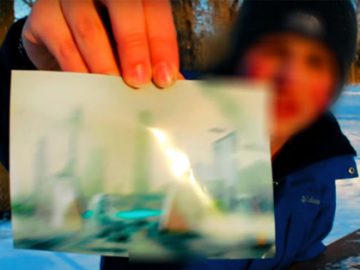“I’ve given up my film career to concentrate on Gena, my whole life right now is about keeping her alive,” Chuck Norris explained. “I believe this issue is so important.”
Gena Norris, wife of action star and martial arts expert, Chuck Norris, lives her life in agonizing pain. The 54-year-old feels constantly weak and suffers debilitating bouts of pain as well as a searing, burning sensation. She states she feels broken.
Today, the couple is convinced that her problems were initiated by the injection she was given before a magnetic resonance imaging (MRI) scan to check for rheumatoid arthritis.
According to the couple, they have spent around $2 million on treating her illness.
Gena said: “It’s infuriating and heartbreaking — it’s a vicious, ugly secret that has been kept hidden — something Chuck and I are determined to change.”
The injection she was given is what’s known as a contrast agent — basically a dye used to improve the clarity of the scan —highlighting specific organs, blood vessels, or tissues to make them easier for the radiologist to determine the extent of disease or injury.

Gadolinium contrast agents are estimated to be used with around a third of the 60 million MRI scans performed worldwide annually. The NHS carried out three million MRI scans last year — hundreds of thousands of them with a gadolinium contrast agent, according to the Medicines and Healthcare products Regulatory Agency (MHRA).
Gadolinium has been used in contrast agents since the ‘80s and was thought to pass out through urine within hours. Latest studies suggest it can be deposited in areas of the body, including the brain. A 2014 study at the University of Teikyo in Japan found gadolinium deposits in the brains of patients given the same injections that Gena had.

Crucially, in Gena’s case, this dye contained a heavy metal called gadolinium, which has magnetic properties. Used with MRI scans, this chemical accumulates in abnormal tissue providing a greater image contrast.
In 2012 Gena went in for an MRI and after felt an intense burning in her body. Her symptoms continued to worsen, until she had to leave Texas and travel as far as China to receive controversial alternative treatments such as chelation therapy and stem cell treatments. Her symptoms have improved, but doctors are saying that her life expectancy has dropped due to this horrific accident.
In the spring 2013 Gena became desperately ill after three gadolinium injections in eight days during investigations for rheumatoid arthritis. She had tested positive for rheumatoid factor, sometimes a marker for the condition, and doctors were checking for signs of inflammation.
In the space of a few weeks she was rushed to hospital six times with excruciating rib pain, breathing difficulties, full-body tremors, muscle weakness, and joint pain — but doctors were baffled.
‘Before this, I was a vibrant person,’ says Gena. ‘In fact, I’d say my health and fitness levels would have put me in the top 10 per cent of people in the world back then.’
The symptoms she had: nerve pain, brain fog and musculoskeletal problems such as muscle weakness, were worryingly familiar, and she became convinced there was a link. ‘I asked about the injections at the time, but was told they were perfectly safe and I just had to drink water and the contrast agent would be out of my system in a few hours,’ she says.
Gena is going through stem cell therapy right now.
According to the direct gadolinium toxicity site, Establishing the Gadolinium Toxicity Connection Symptoms are generally experienced at an acute level shortly after having a contrast MRI and at a chronic level for years following their last contrast MRI. Some people have the early acute symptoms that they can tie time-wise to their contrast MRI. Often they are very frightened, and any appeals to the medical professionals involved in the contrast ordering or administration process meet with denial or disbelief regarding the connection of their symptoms to the contrast agent, and certainly there is no supportive relief.




































Connect with us